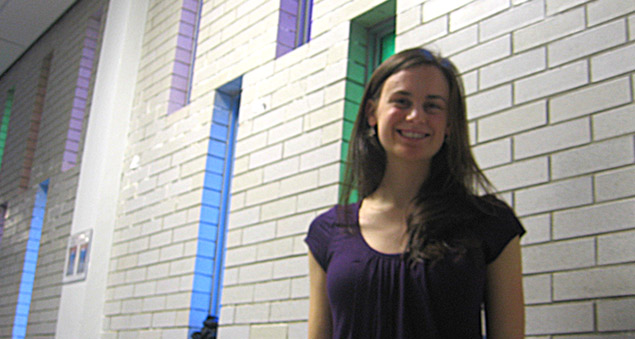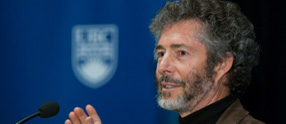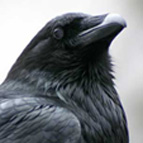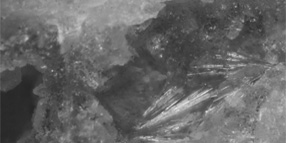 |
UBC Science Connect |
| NEWS AND EVENTS FOR UBC SCIENCE ALUMNI | VIEW HTML VERSION |

|
Rhodes to SuccessTwo UBC Science students--one studying honours chemistry, the other a former physiology student currently studying medicine--have been awarded the prestigious Rhodes Scholarship. The $150,000 scholarships will enable Kayli Johnson and Jaspreet Khangura to focus their studies on the synthesis of complex natural products and international health issues, respectively. Only 11 scholars are named annually across Canada, and this is the first time that two UBC students have received the award in one year. |


Join Us for the 2010 Winter Olympic and Paralympic Torch Relay this February and March
The Olympic Torch Relay winds through the UBC Point Grey Campus as it makes the final leg of its journey towards the Opening Ceremonies of the 2010 Games. Everyone is invited to join in on the celebration. There will be entertainment and activities for the whole family. Come be a part of the Olympic experience! The Journey of the Blue Whale The Official UBC Science Guide to Celebrate Research Truly Intelligent Machines? |
 |

Google Founding Investor Gives $2M Toward Science Education Transformations at UBC
A UBC Science alumnus widely credited with helping establish the Internet search giant Google is supporting undergraduate education transformations with a $2-million gift to the Carl Wieman Science Education Initiative (CWSEI). David Cheriton, a computer science professor at Stanford University, announced the gift with Simon Peacock, UBC Dean of Science, Carl Wieman, Nobel laureate and director of the CWSEI, and David Farrar, UBC Provost and Vice President Academic. The gift will support the transformation of core, required courses in the departments of Computer Science and Mathematics over the next five years with the help of the CWSEI, positively impacting thousands of students a year. "The CWSEI provides enormous support and guidance to UBC science faculty in making the classroom experience more rewarding for both teachers and students," said Simon Peacock, UBC Dean of Science. "By improving student learning and helping us graduate engaged, scientifically literate citizens, Prof. Cheriton's gift will have a lasting impact far beyond our math and computer science classrooms at UBC and partner institutions." |

Share Your Science Experience at Beyond the BSc |
|

|
Hey Science alumni! We need you to share your interesting stories with current Science students at this flagship event for undergrads. Whether you ended up in research, opening your own company, working abroad, or flying to the moon--we want to showcase where your BSc took you! Join us for this evening of information and networking. |

Testing Positive: Zebrafish Behavior Screens Could Hold Potential for Drug Discovery |
||
|
Researchers from UBC and Harvard University have co-developed a system that captures on video and barcodes the behavioral responses of zebrafish to chemical compounds on a large scale. The approach could dramatically speed up the discovery of new psychiatric drugs.  |
 |
Current drug discovery approaches are typically target based, meaning they attempt to identify compounds that modify the activity of a specific protein target. These approaches benefit from being systematic and high throughput, but ussually lack the ability to discover drugs that modify nervous system function in new ways. "The capacity of this approach is quite distinctive," says Jennifer Bryan, an associate professor in the Department of Statistics and the Michael Smith Laboratories. "Most pharmacological studies of behaviour have been relatively small scale, involving a few small molecules at most." |

In the Company of Crows and Ravens |
|

|
Crows and ravens are some of our most common, but least understood birds. Join John Marzluff to learn about crow ecology, natural history, and behavior. Hear about amazing examples of tool use by crows, complex communication among ravens, and the conservation needs of the endangered crows of Hawaii and the Mariana Islands. Big, bold, and boisterous, crows and ravens are hard to miss and this talk will answer the many questions they conjure up in all who have watched them. |

EOS Professor 'Metals' in Mineralogy |
||
|
An unassuming mineral hidden away in rock samples collected almost 30 years ago has been named after a professor of Earth and Ocean Sciences at the University of British Columbia. Groatite, a new species of phosphate mineral, was named after Lee Groat, a professor of mineralogy at the university.  |
 |
Details of the discovery and properties of the mineral were outlined in the most recent issue of The Canadian Mineralogist by a team led by researchers from the University of Manitoba. Frank Hawthorne, the principal investigator on the paper, named the mineral after Groat for his extensive contributions to pegmatite mineralogy. "I was surprised and honoured," says Groat. "I did my PhD under Frank at the University of Manitoba. When he approached me at the 2008 Geological Association of Canada meeting in Quebec City to ask my permission to name a mineral after me, I was stunned." |

UBC Astronomers Unveil Detailed View of New Galaxies |
||
|
A UBC Science astronomer has produced the most detailed images of deep space from 12 billion years ago, revealing tens of thousands of newly discovered galaxies at the early stages of formation. Recently presented at the first International Herschel Science Meeting in Spain, the images by UBC post-doctoral fellow Gaelen Marsden use data from the European Space Agency's Herschel Space Observatory.  |
 |
The striking images paint a picture of the Universe just one billion years after the Big Bang, when the Universe was a thriving nursery of newly-formed stars. "These images allow us to see 10 times more galaxies than ever before and with stunning clarity," says Marsden, who has spent the past few years working on similar but lower-resolution images from previously collected data. "It's incredibly rewarding to see the high sensitivity and resolution that the new Herschel data have enabled. They allow us to take a close look at the stars during early and vital stages of formation, and could change the way we study formation in the future." |

Journey Too Long for Airy Athletes |
||
|
Despite their ability to fly, tropical birds waited until the formation of the land bridge between North and South America to move northward, according to a UBC study published in the Proceedings of the National Academy of Sciences.  |
 |
"While many North American birds simply flew across the marine barriers that once separated the continents, tropical birds, especially those in Amazon forest regions, began colonization of North America almost entirely after the completion of the land bridge," says lead author Jason Weir, who conducted the study as part of his PhD. "This study is the most extensive evidence to date that shows the land bridge playing a key role in the interchange of bird species between North and South America and the abundant biodiversity in the tropical regions." |

With Glowing Hearts |
|

|
This February and March, UBC welcomes the world for the Vancouver 2010 Olympic and Paralympic games. UBC is thrilled to have so many of our wonderful staff, faculty, students and alumni involved in the games. Our alumni and friends are representing Team Canada as torch bearers and volunteers, and researchers are working hard to give our athletes an edge as they compete. Find out more about news, events and getting around during the Games on the Olympic and Paralympic Secretariat website. |


Thomas McLaughlin, |
 |

UBC Botanists Receive Funding to Map Sunflower Genome
UBC Science researchers have received $10.5 million in funding from Genome Canada and international partners to create the first reference genome of the sunflower family – work that will pinpoint agriculturally important genes and could result in a hybrid sunflower that provides both biofuel and food products. UBC Science Alumna Wins 2010 Nestor Korchinsky Student Leadership Award UBC CS Students Go for Gold at ACM International Collegiate Programming Contest UBC Science Alumni and Friends Reconnect at EOS Round Up Vancouver Foundation Supports Biodiversity Outreach at Beaty Museum |

 |
|

|
During the 2010 Winter Olympic Games in Vancouver and Whistler, experts from Earth and Ocean Sciences will predict weather conditions the day before Team Canada's athletes compete in alpine, nordic, and freestyle skiing and snowboarding to give technicians time to prepare the wax and grind on athletes' equipment. Go Canada! |

 | ||
You're receiving Science Connect because, as a UBC Science alumni or supporter, you've given the university permission to contact you. And while we hope you find our e-magazine interesting, we take your privacy seriously, and have made it easy for you to: | ||
 |
||

 |
| © 2010, UBC Faculty of Science | Privacy | Update your contact information |

